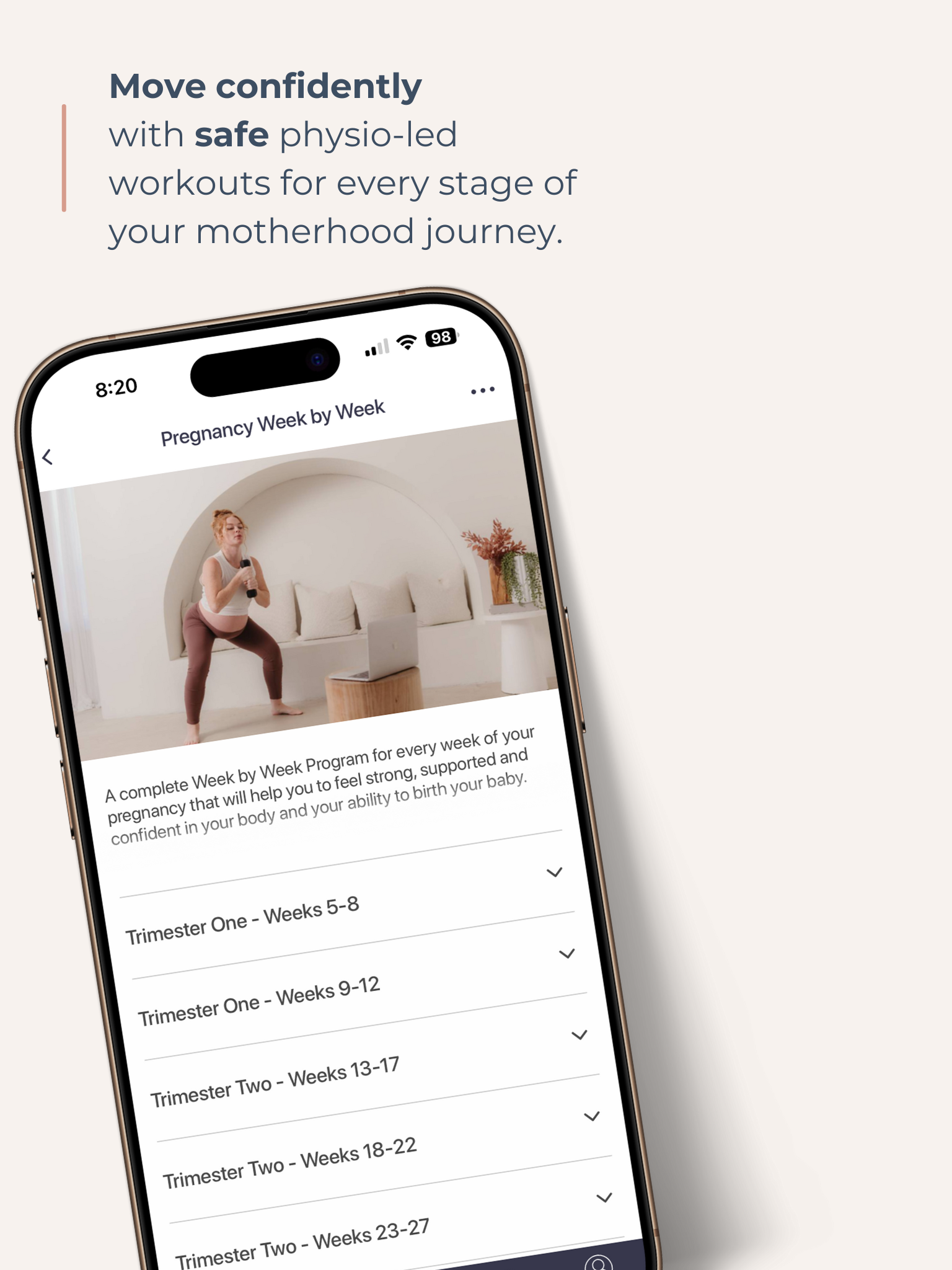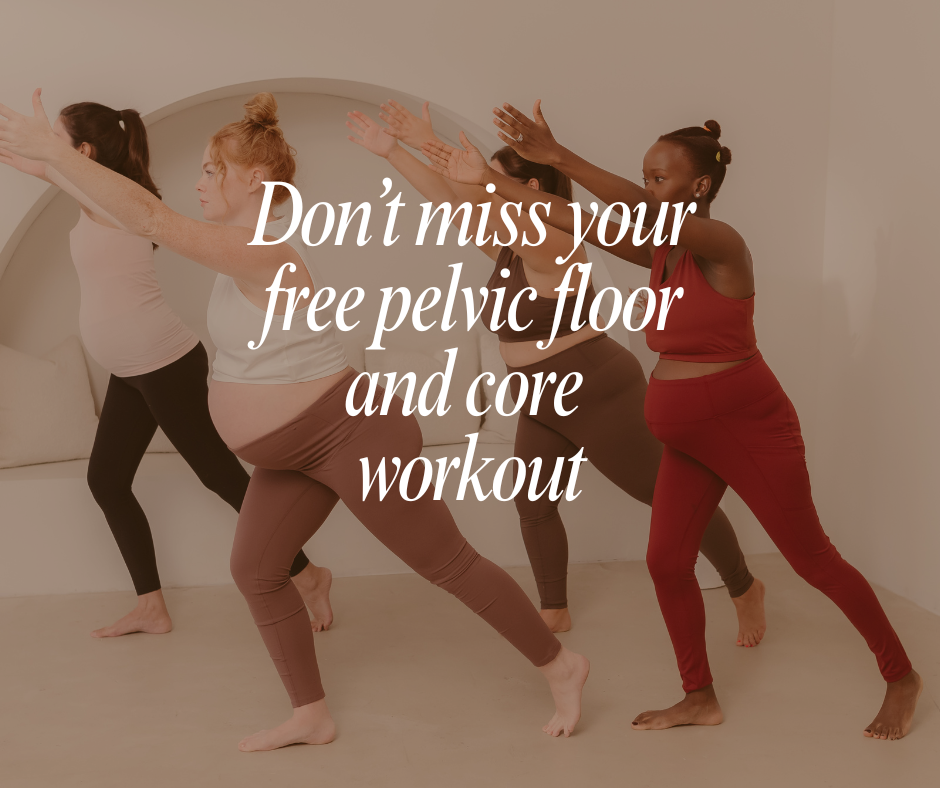'I just want this baby out of me' - A psychologist shares tips to help cope with being overdue

Written by Dr Rosie Pajak - Perinatal Psychologist and Founder of The Birth Healing Collective
There’s nothing quite like the final few weeks of pregnancy. Heavy, tired and uncomfortable, we drop into a strange zone of living life day by day. Waiting for one of life’s biggest experiences to happen, yet having no idea when it will happen or how it will unfold.
Psychologically, this level of uncertainty pushes most of us out of our comfort zone. And if you go past your due date, things usually feel even harder. This is an essential part of your pregnancy to navigate through and could determine whether your birth experience is a positive or negative one. So, let’s talk today about how to cope with being overdue.

Why are the final weeks of pregnancy so tricky?
Pregnancy is complicated, and it’s okay to be over it! Physically, you’re probably getting very uncomfortable now. You might feel increasingly ready to meet your baby and move into the next phase.
Some of this can be emotional as well as physical. Most of us like to be in control of our lives and struggle with uncertainty. If your due date has been and gone, waiting for labour to start can begin to feel quite mentally challenging.
You also may find that interventions (like stretch and sweep, breaking your waters, or booking an induction) are increasingly suggested to you - possibly with increasing pressure. Many women talk about ‘being on the clock’ as their care providers begin to set deadlines for labour, often based on hospital policy. Some women experience coercion or threats, leaving them feeling increasingly anxious about their baby’s safety in the womb.

If you are anxious about your baby, physically uncomfortable and under pressure to organise an intervention, it is understandable that you might shift from your original birth choices.
As a perinatal psychologist, I notice that for some of the mums I see, this change to their birth feels completely fine – they are comfortable with the choice they made in response to their situation.
But some women tell me that they found themselves agreeing to intervention that was not medically necessary – or wasn’t what they wanted. Sometimes mums carry this as a painful regret because of the impact it had on their birth experience.
When someone tells me this, I always take care to try to understand what those final few weeks of pregnancy felt like for her. When we think about this together, we can usually see why that decision made the most sense at the time. Often, it felt like the best step for her and her baby, based on the information that was being provided (which may not have fully covered the risk of that intervention or the alternatives). Taking an active step towards birth might have been necessary to relieve some of the anxiety connected to the intense uncertainty she was experiencing. Or perhaps she was not supported to explore alternative options or made aware of her right to decline interventions she didn’t want.
I firmly believe that there is no one right way to give birth. Intervention has an important role to play – but what’s most important is how these decisions are made.
Research tells us that a positive birth experience has far more to do with a mother feeling fully supported by her team and provided with enough information to make informed decisions about her body, her birth and her baby.

Tips to cope with being overdue
How can you cope during this final stretch of pregnancy - and maximise your chances of a positive birth experience? Below are some of the tips I share with my patients.
1. Remember that there’s nothing quite as huge and unpredictable as birth
Take some time to acknowledge how emotionally challenging the end of pregnancy can be, especially not knowing how or when the birth will happen. Just naming this out loud can help! Be gentle with yourself if this is affecting you and remember it’s okay to find this phase difficult.
2. Remember that all babies take different amounts of time to be ready
Pregnancy is a hugely varied experience, and your baby might need a little longer in there! Remind yourself that they are growing, developing and strengthening each day inside you. It can help to remember that due dates are notoriously imprecise. Many mums find that reframing this as a due month feels more psychologically helpful.
3. Focus on what you can control
The final stretch of pregnancy is an exercise in patience and surrendering to what we don’t control. It’s okay to find that hard! It can help to focus on what you can control: your choices and decisions. Go back to your birth plan and think about what you would like to do if you are still pregnant in two days, four days, six days… Remember that you are in control of your choices.

4. Find your voice.
It is totally okay if you do want to induce labour! (You can read about EMP Founder Kimmy's positive indication birth here). The important thing is that it is always your choice. Ask your care providers to talk you through the pros and cons of any intervention they suggest. Having a clearer understanding of the risks and benefits means you can weigh this up against waiting a couple more days for labour to start – and make your decision again at that point. If you are feeling pressured, try to find out if it is medically necessary for you based on your pregnancy and how your baby is currently doing. Remember that you don’t have to consent to interventions – and calmly stating, ‘Thanks for the option, but that isn’t what I want’ is allowed.
5. Soothe your anxiety
All of this might be making you feel emotionally unsettled, so focus some time each day on activities that help you feel grounded, calm, and connected. Listen to music you love, do some gentle movement, and talk to people who make you feel good. Use breathing exercises or audio meditations to bring your body back to a calmer state.
6. Connect to your strength
Positive birth affirmations are one thing, but I believe mums need strong birth affirmations! These words sink in and can shift how we feel. So, each day, remind yourself that your body has done an amazing job getting you and your baby to this point. Notice how strong you are. Think about everything you have already coped with during the 240+ days of this pregnancy. Breathe deep, and reassure yourself that you can cope with being pregnant a little longer.
7. Shut the world out.
This is the time to hunker down with your little family. Spend time with your loved ones; rest and move slowly through each day. Tune into your body and listen to what it is telling you. Boost oxytocin with cuddles (or sex) to send your body signals that all is safe and relaxed and you are ready for your baby to come and join you!

A gentle reminder…
These final weeks of pregnancy aren’t easy. By acknowledging how physically and mentally challenging it is, and taking steps to help yourself through those feelings, you might find you can embrace or even enjoy this strange period before your baby arrives.
Interested in more evidence-based information on psychological recovery after a difficult birth? Perinatal Psychologist Dr Rosie Pajak shares information and resources at The Birth Healing Collective. You can follow her @birth_healing_collective.
Get your Free Physio-led Pelvic Floor and CoreWorkouts
Download three free videos for either pregnancy or postpartum.




